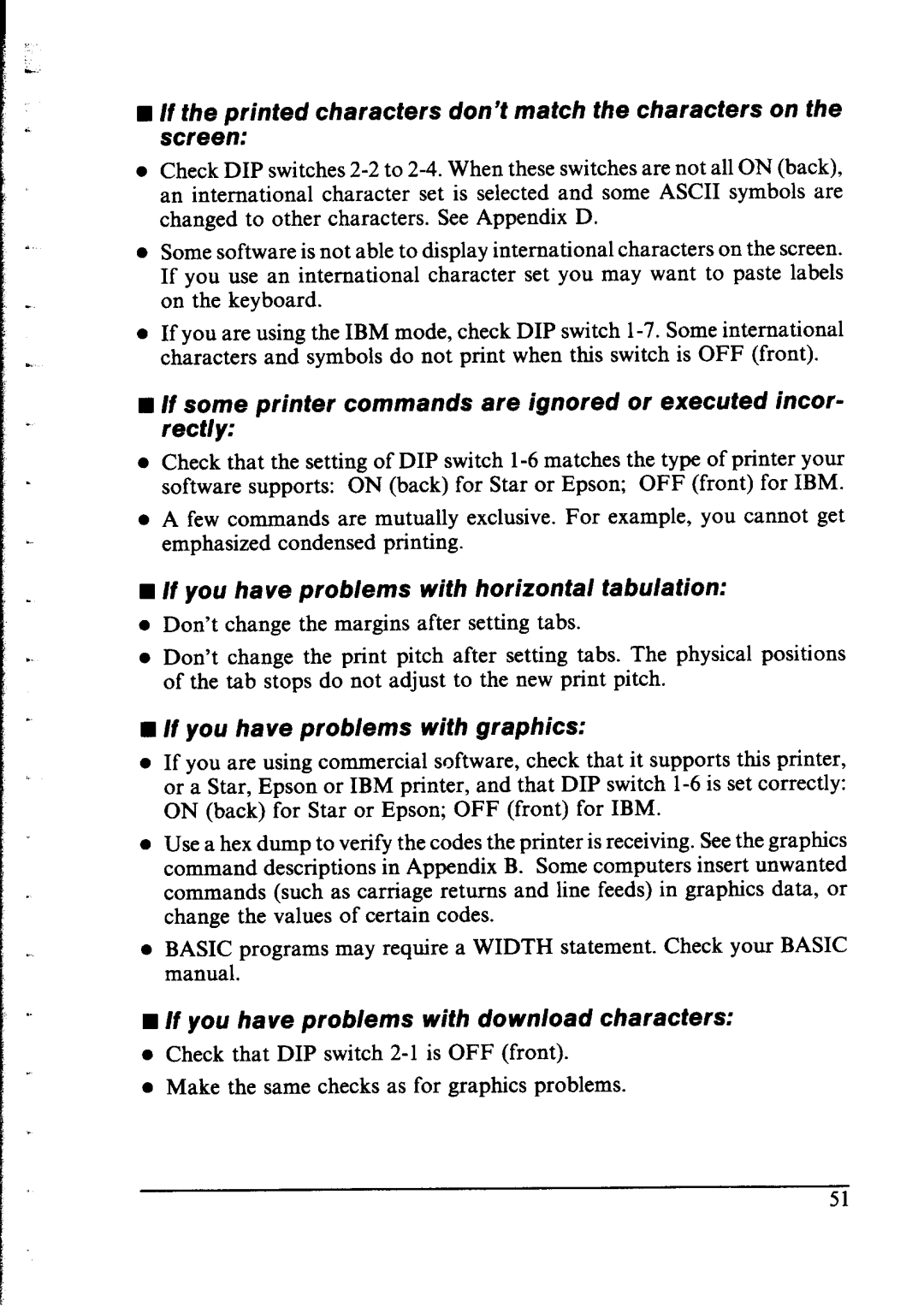
nIf the printed characters don’t match the characters on the screen:
•Check DIP switches
•Some software is not able to display international characters on the screen. If you use an international character set you may want to paste labels on the keyboard.
•If you are using the IBM mode, check DIP switch
nIf some printer commands afe ignored of executed incof- fectly:
•Check that the setting of DIP switch
•A few commands are mutually exclusive. For example, you cannot get emphasized condensed printing.
nIf you have problems with horizontal tabulation:
•Don’t change the margins after setting tabs.
•Don’t change the print pitch after setting tabs. The physical positions of the tab stops do not adjust to the new print pitch.
nIf you have problems with graphics:
•If you are using commercial software, check that it supports this printer, or a Star, Epson or IBM printer, and that DIP switch
•Use a hex dump to verify the codes the printer is receiving. See the graphics command descriptions in Appendix B. Some computers insert unwanted commands (such as carriage returns and line feeds) in graphics data, or change the values of certain codes.
•BASIC programs may require a WIDTH statement. Check your BASIC manual.
nIf you have problems with download characters:
•Check that DIP switch
•Make the same checks as for graphics problems.
51
